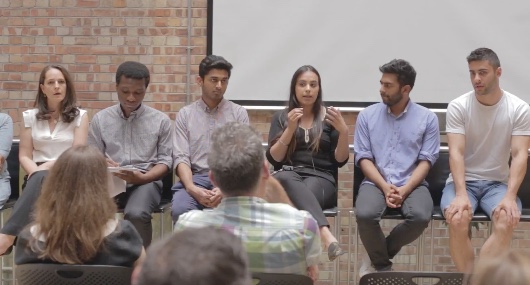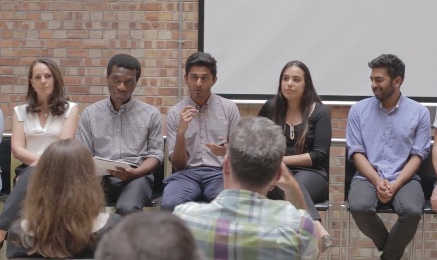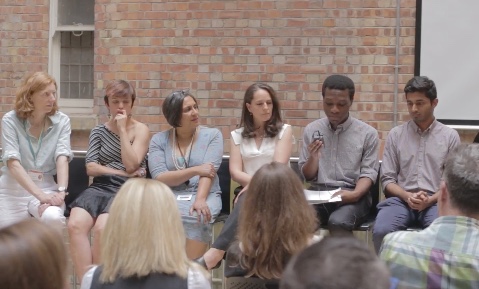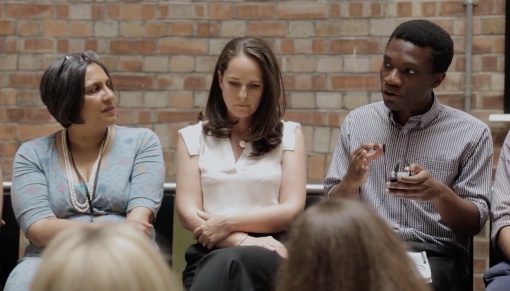As well as the individual speakers presenting their research and experiences at the Liberating the Curriculum (LTC) symposium, there was also a panel of students and staff/speakers who discussed their own thoughts and reactions to the talks. Opening up the discussion led to some valuable stories and insights from our panel, whose individual experiences make for compelling viewing.
Our first video is an extract from a story that Maihma shared about her father’s experience in A&E.

Personally I found this to be a valuable reminder that people’s needs and priorities can vary significantly, and gaining informed consent should really include all the information about what will happen – not purely what you consider to be relevant. You can never be sure what people’s main concerns will be until you have actually asked them!
Mahesh then went on to raise a concern that he had over the provision of dermatology teaching at UCL using almost exclusively pictures of conditions in white skin. As he rightly points out, dermatology is a very visual specialty. It is generally far more difficult for myself and my medical student peers to identify a condition if you’ve never seen it on a darker skin colour before, and it is easy to imagine scenarios where this could result in poorer outcomes for darker skinned patients.

In addition, Mahesh touches on another source of healthcare inequalities. There is a whole other post that could be written about the lack of an adequate evidence base for many medical therapies in various ethnic groups, as well as in women, due to lack of female and minority ethnic participation in clinical trials. From personal experience, this phenomenon is poorly covered throughout pre-clinical and clinical years.
On a similar note, Amali gives her perspective as an obstetrician and gynaecologist on the role of feminism and the relevance of respecting women’s decision making, especially considering the historic female lack of bodily autonomy. Alongside this point she also mentions how many medical guidelines are based more on observational rather than scientific evidence. My take on this was that it shows not only the importance of respecting female autonomy (and patient autonomy in general), but also that as medical students we should really be considering how much of the ‘received wisdom’ that we learn from other medical professionals is actually based in fact.

The clip below shows Jayne discussing why it is important to create representation for marginalised groups at medical school and within the profession as a whole. Jayne explains here the role for visible groups and mentors, in this case for LGBT+ students, so that there is someone that they know they can go to if they experience problems or simply want to talk. Equally, it can also lead to people from these marginalised groups forming connections that can help to counter the influence of the ‘boys’ club’ of largely white, straight men, an unwritten source of power that excludes many people.

It seems from the discussion in the video below that the roots of this power structure are present as early as the start of medical school. Thamani, the student chair of the panel, shared a story commenting on the fact that often, the friendships formed at medical school seem to fall within ethnic groups. Katherine, who spoke earlier about bias in assessment and opportunity for BME doctors, agreed – she mentions her research looking at friendship groups formed in early years at medical school that found that people were more likely to be friends with people from their own ethnic background. How to go about countering this trend, or at least broadening the range of people that medical students interact with, is therefore something that I think both the medical school and we as students should be thinking about.

Faye finishes off this series of videos with a call to action for medical students at UCL and other universities to build on the work already being done to change the curriculum. Although the panel have discussed some areas for improvement, the LTC initiative and the positive aspects of the current curriculum are already a huge step forward in the education of UCL medical students and there is a lot to be proud of.

By Gemma Wells and Maihma Lamba
